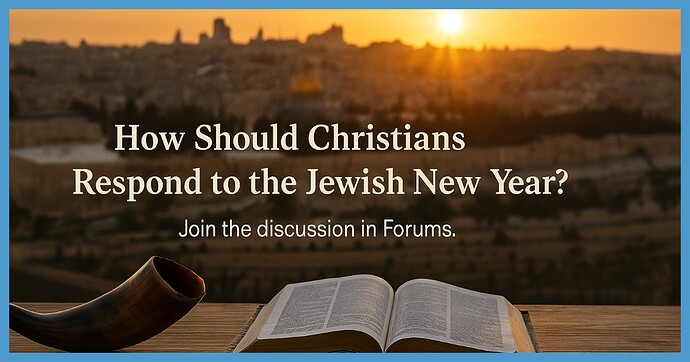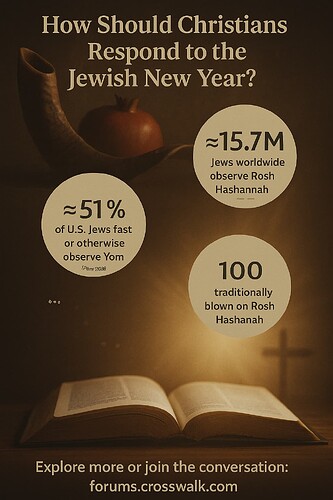How Should Christians Respond to the Jewish New Year?
As the Jewish calendar marks Rosh Hashanah—the beginning of the New Year—Christians may find themselves wondering what place, if any, these biblical feasts should have in their own spiritual lives.
#JewishFeasts #FaithAndTradition #ChristianReflection #christianforums #crosswalkforums #forums #crosswalk #faithcommunity #faithforums
For Jews worldwide, Rosh Hashanah is a time of reflection, repentance, and renewal. Rooted in the Old Testament calendar of feasts, it launches the “High Holy Days” leading up to Yom Kippur, the Day of Atonement. Trumpets sound, prayers are offered, and the call goes out to examine one’s heart before God.
For Christians, though, the tension is real. On the one hand, Jesus fulfilled the law and its festivals, pointing to Himself as the ultimate atonement. On the other hand, these feasts carry rich symbolism that can deepen our understanding of redemption, repentance, and God’s covenant faithfulness. Should believers today observe them in some way—or simply see them as shadows of what Christ has already completed?
Some argue that engaging with Jewish feasts enriches Christian faith, connecting us to the biblical roots of salvation history. Others caution that adopting such practices can blur the line between Old and New Covenant, leaving Christians confused about where their hope truly rests.
The question is not just theological—it’s practical. Should churches acknowledge these feasts in worship? Should individuals personally study or mark them? Or is it better to step back and allow them to remain distinctly Jewish, while still appreciating their lessons about God’s plan?
So when Rosh Hashanah arrives, how should Christians respond—with observance, reflection, or simply gratitude that Christ has fulfilled the law?
Read more here:

